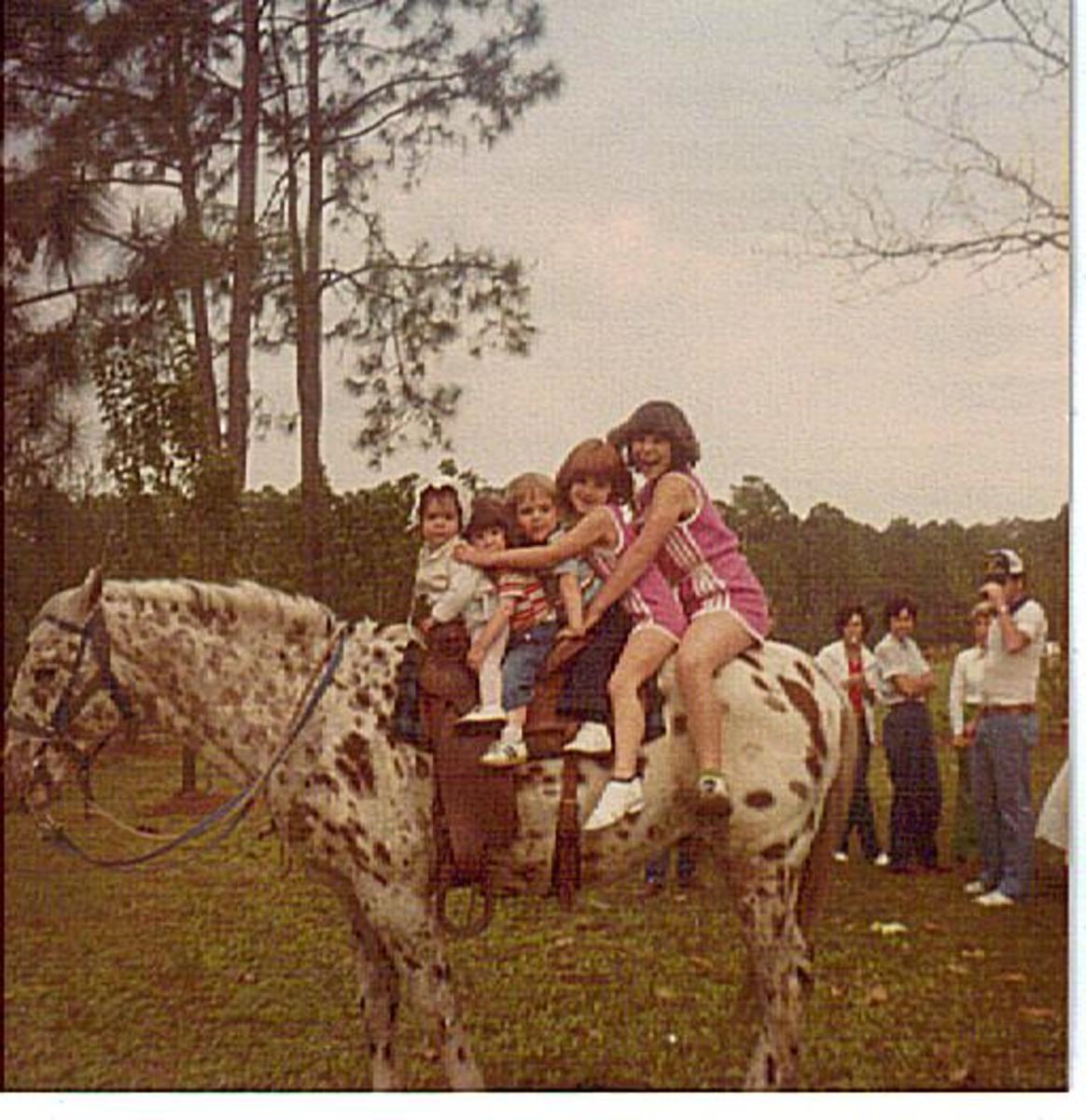Horses and the Economic Crisis
There is much talk these days about the fallen market in horses. People all over the United States are having a hard time selling horses. Heck some of us can't even given them away. This is simple economics - we have flooded the market with horses. We are breeding more horses than we can find buyers, and we have outlawed the most efficient way to dispose of unusable horses.

Slaughter
I hate the thought of a beloved companion animal going to slaughter, but the reality is that when we got our legislators to pass laws that closed down equine slaughter houses in America we opened the way to more horse misery than we could have imagined. When a horse is too old, too lame, or too sick to sell what can we do with it? Many people cannot afford to care for a horse into its geriatric years until it dies of natural causes. This care often requires expensive veterinary care. And, have you really thought about the expense of disposing of your horse's body after it dies? There are strict health regulations that cover how one can dispose of dead animals; it is not like burying your dog in the back yard under the hydrangea bush.
Combined with unexpected hard times due to lost jobs, divorce, and a host of other reasons some people just do not have the money it takes to keep their horse. So, what we are seeing today are horses suffering from neglect and dying of starvation and un-treated disease. There are even stories of horses being released into the wild to fend for themselves. Equine slaughter was a place for these unwanted horses. It was an option, and to me a better one than letting a horse waste away in a bare pasture.
Middle to lower income people may have been able to afford a horse and to care for it well at the time they made the decision be become a horse owner. But the slump in our economy has changed their capability to continue. It is a painful situation for both the people and the horse.
Breeding
Yet, horses are still being bred indiscriminately. And many purebred horses are being sold without papers because after the mare was bred and had her live foal (a miracle right there) the owners can't afford the registration fees. Sometimes it is breeders and trainers who convince clients to breed their mares to their champion stallion. Other times it is the pleasure horse owner who wants to "experience" raising a foal. The problem is these mare owners haven't looked down the road. Some have no idea how to handle and train that foal, sometimes the kids grow up and leave and the parents no longer want the responsibility of horses, judges change there mind and what made the stallion win his championship is no longer what wins or maybe the foal just didn't inherit his daddy's traits. So, now we have an untrained horse that nobody wants to buy. Maybe the "breeder" will give the horse away. It gets passed around by a series of owners who do not realized how much money it takes to care for a free horse.
So, how much money does it take to keep a horse? It varies according to where you live, what you do with the horse, and the health of the horse. Let's say you just want to ride on the weekends, no showing or hauling off to ride away from home. Let's say you have a couple of acres and a building you can convert into a stall or shelter. We assumed we had a fence already. If not you have to build one. Even an electric fence cost money, not to mention the increase pull on your electric bill. The bare necessities are in place to keep your horse at home. You will have no expensive boarding bills to worry about. So Joe down the road has given you a horse.
We'll start with a basic shopping list: Saddle, bridle, saddle pad, halter, lead rope, buckets (no metal) for feed and water, grooming tools, fly spray, shavings, wheel barrow or muck bucket, pitch fork, and feed and hay. Even a used saddle that is safe to use will cost at least $150, but more likely $300. The rest of the list, except the feed and hay will be another $50 minimum. Wheelbarrow cost about $60, muck bucket cost about $10. Decide whether you want to carry that big bucket to the manure pile or would you rather spend more and roll it. The pitch fork or muck rake will run about $12. Feed, usually bought in 50 pound bags, especially formulated for horses, runs from $6 to $15 per bag. It depends on the type of feed and grain prices. Hay is one reason some people have had to give up horses. Hay used to cost a couple of dollars a bale if it was locally grown hay. Drought and floods along with the increase in gasoline prices have driven the cost of hay sky high. In some places a bale of hay tops $10 a bale. Hay is more expensive in the winter when supplies are depleted. A horse eats two to three bales of hay a week, maybe more if the horse gets no pasture at all. Hay consumption varies depending on the size of the horse, too. So, you could find yourself spending $120 a month on hay.
If you horse is staying part of the day or night in a stall you will need bedding. Pine shavings is available in most regions. You can buy bagged shavings at the feed store, it takes four bags to initially bed a 12 X 12 stall, and depending on how much time the horse is in the stall, you'll have to replace part of the shavings. That usually takes one to two bags per week. One bag cost about $6.
In discussing horses and money, we haven't begun to add the cost of veterinary services and farrier services. If your horse has absolutely no sickness or injury (good luck with that) then you still have two vet visits a year. In the spring and fall your horse needs certain vaccinations to prevent deadly diseases, an annual Coggins test is required, and you should have your horse's teeth check and floated if needed. That visit can cost upward of $100. Most vets charge a farm call fee to cover their fuel and travel time so that will be in addition to the services.
Your horse should be de-wormed regularly, and its feet must be trimmed or shod every six to eight weeks. The de-worming products cost from $5 to $12, and usually a good rule of thumb is to de-worm about every eight weeks.
The farrier visit varies. Trimming the hooves may be all you need to have done. But if you are going to be riding on rocky terrain or your horse has unhealthy feet, shoes may be required. Add another $30-$100 every other month to your horse budget.
Even with the tightest horse budget you are going to find it costs at least $150 per month to keep a horse. That is not taking into account miscellaneous purchases like medications for minor wounds, hoof dressing, riding attire (please get a safety helmet), and other things you'll find in the tack store and feed store.
Before you buy or accept a free horse, stop and think about what you'll do if a crisis arises and you can't keep your horse. What will you do with it? If it is a situation where everyone is hurting financially what will become of your horse? Will you be able to sell or give it away? And before you decide to breed your mare think long and hard about what will become of that offspring in ten or fifteen years? Is there any way you can be sure the horse will live out its life well care for? I am sorry to say it, but I do not believe that even crosses the minds of most breeders. I hope the people who worked so hard to close down the slaughter houses will come together and work just as hard to educate people against breeding horses when they can't be sure of the foal's future.










